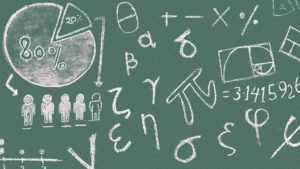In JEE and NEET only thing common are the two subjects Physics and Chemistry. Every student knows that the preparation for Physics and Chemistry is quite different for both JEE and NEET. But the syllabus of both subjects for the two exams is all the same. Level of questions for both the examinations vary for JEE and NEET. In NEET subjective type of questions are at excess compared to JEE.
The questions in NEET are simple and formula based which only involves only one topic or rather the questions are based solely on one concept/topic. But in JEE the questions are tricky and are based on multiple topics or concepts. In JEE, questions are mostly calculation based from concepts and in NEET mostly questions check your concepts and theory. So this is the main difference.
The questions of Physics and Chemistry is similar in JEE and NEET although the parts of physical chemistry are more important in JEE as they concentrate on the engineering side of it. You need to have extensive knowledge on organic chemistry including the chapters of nomenclature. The reaction mechanism from the chapters of hydrocarbons and carbonyl compounds are important for both but in NEET it holds a special place along with some basic knowledge on the inorganic chapters of s, p, d and f block elements. Physical chemistry chapters of atomic structure and chemical kinetics and energetics along with molarity concepts are a must for NEET and holds less weightage in JEE.
Talking about Physics it is more or less similar although the application based problems on circuit diagrams based on modern physics, electromagnetism and current electricity will be much more important in examination. Various problems on wave optics and thermodynamics are frequent observations in NEET examination. The mechanics is given almost same weightage in both examinations with complexity of the problems usually being more in JEE engineering entrance which is meant to be qualified by students having a strong mathematical base at least stronger than those who have prepared with biology in NEET.
Levels of questions of Chemistry in JEE MAINS & NEET are very similar. Rather, questions are more calculative in NEET and more theory based in JEE Mains.
For preparing chemistry, you could refer to the following books along with NCERT & NCERT Exemplar.
- Physical Chemistry by O. P. Tandon and A.S Singh
- Organic Chemistry by Morrison and Boyd
- Modern ABC for Chemistry for Class 11 & 12 by S. P. Jauhar
- Concise Inorganic Chemistry by J. D. Lee
- Chemistry by Dinesh
- Modern Approach to Chemical Calculations by R.C. Mukerjee
Physics is generally found to be tricky as students find a combination of theory and applications. The special thing about the JEE Main Physics paper is that 80% of the topics in Section A come from the prescribed theoretical part while the remaining 20% comes from the practical component (experimental skills). In case of NEET the questions are concept based so you have to put less effort on numerical parts.
These are the books which you have to follow apart from your NCERT textbooks to clear for both examinations:
- Concepts of Physics (Vol I & II) H.C. Verma
- Problems in Physics I.E. Irodov
- Fundamentals of Physics Halliday, Resnick, and Walker
- Problems in Physics A.A. Pinsky
- Feynman Lectures on Physics R.P. Feynman
- Aptitude Test Problems in Physics Krotov
Apart from this, students/aspirants must always remember that the NCERT is the holy book for your preparation. Without studying NCERT thoroughly creating a base is not possible which would not help you solve the problems from the reference books.
Try to be honest in attending the lectures and understand the concepts taught by your teachers. Apart from questions from reference books you can also practice thousands of questions from PracBee and solve your doubts with them. Better enrolenroll into PracBee course program and see yourself outshine your peers.
Keep following PracBee for more information and updates.



